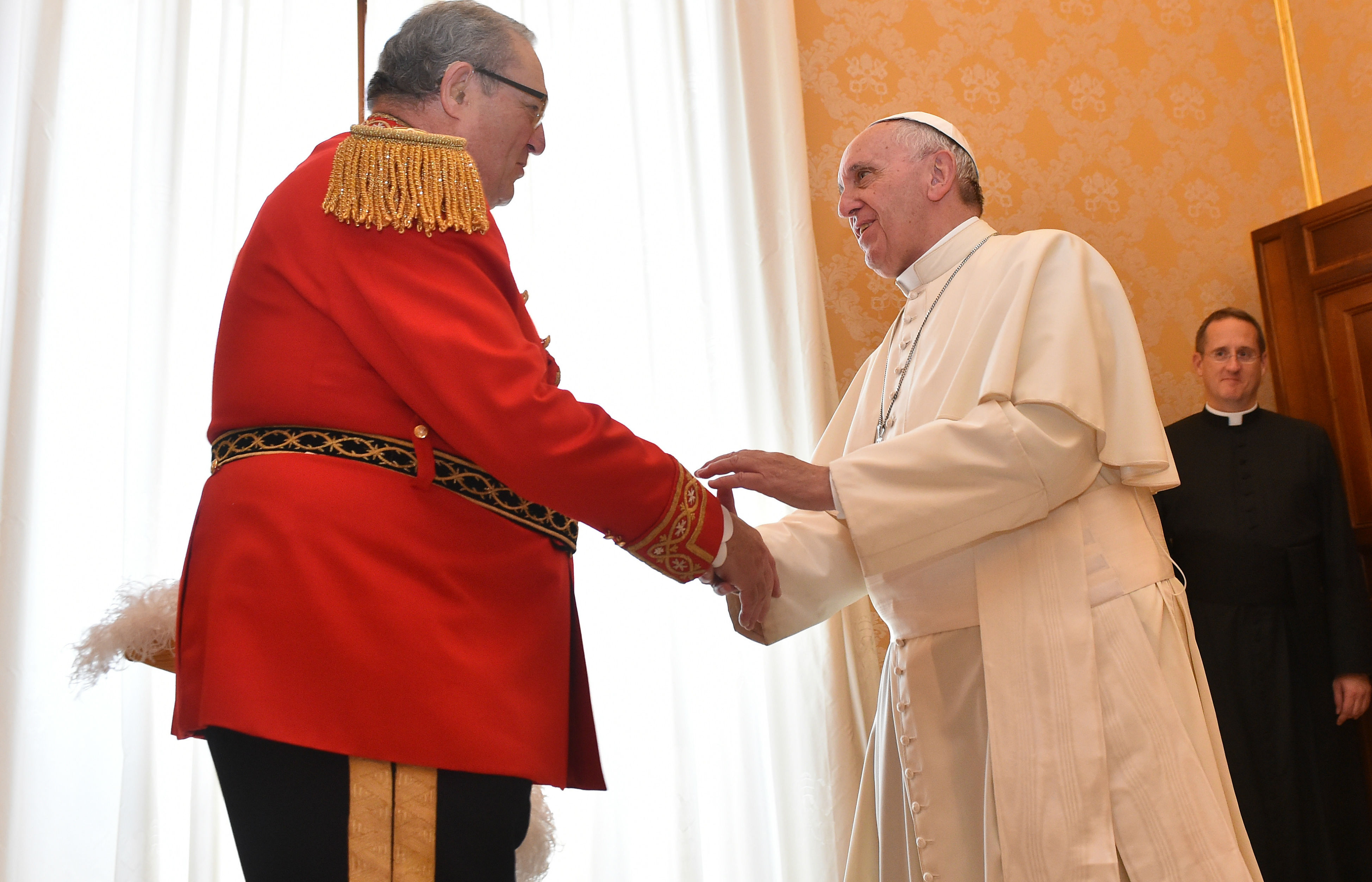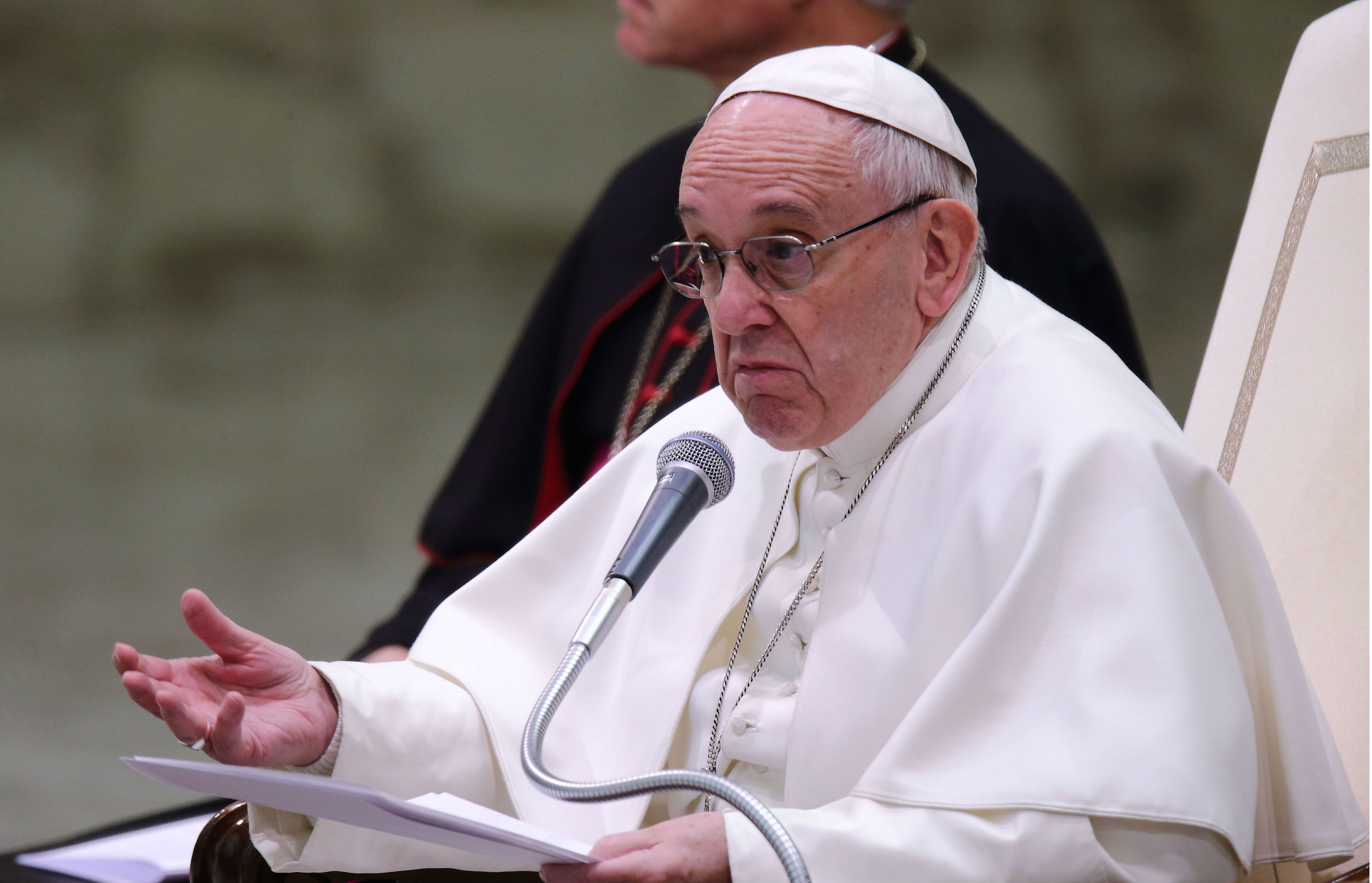Pressure on the Knights of Malta is growing after new evidence emerged that Pope Francis never asked for Cardinal Raymond Burke and the Knights of Malta leadership to sack a senior official in a row about the distribution of condoms.
It comes as the sacked knight, Albrecht von Boeselager, lodged an appeal against his removal using the order’s internal legal system, a move which presents an added headache for Grand Master, Matthew Festing, and Cardinal Burke, the order’s patron and liaison with the Vatican.
In Rome, rumours are swirling that the dispute is not really about condoms, with talk of money, freemasonry and other associated theories, while Vatican journalists are reporting mysterious, anonymous phone calls trying to discredit von Boeselager and the papal investigation into the knights.
The inquiry into the Order of Malta also reveals the scepticism that this Pope has about the world of Catholic chivalric orders with its focus on rank, status and honours. He views some of it as a form “spiritual worldliness” which runs at odds to his vision of a “last shall be first” servant Church. And it is possible that he has plans to reform not just the Maltese knights but others, making sure they are at the service of a poor Church for the poor.
What is now much clearer is this: Cardinal Burke and the Grand Master directly contradicted the wishes of Pope Francis by sacking von Boeselager while erroneously claiming it was the wish of the Holy See.
The latest report from Andrea Tornielli, a respected Vatican journalist with a direct line to the Pope, reveals that back in November Cardinal Burke and Francis met to discuss the dispute concerning Albrecht von Boeselager.
During that meeting Burke asked the Pope to remove the German knight from his position as Grand Chancellor, but after the audience, Francis sent a letter to Burke and senior members of the order making it clear that the matter should be resolved through dialogue rather than dismissals. This was also made clear in a missive from Cardinal Pietro Parolin.
Despite the requests, however, von Boeselager was sacked on 6 December and then suspended from the order.
It was this blatant disregard for the Pope’s wishes that sparked Francis’ dramatic move to set up a papal commission investigating the matter, something the knights have said they will not co-operate with on the grounds that they are a sovereign entity.
Their argument has been effectively dismantled by both Archbishop Silvano Tomasi, who is leading the inquiry, and a legal note prepared for the commission saying the Pope has a right to be informed of the circumstances of the dismissal as he exercises authority over all Catholics. Furthermore, it states that Francis is not “interfering” in the affairs of the order, as some have incorrectly claimed, but simply forming a commission to gather information for himself about a matter he had been drawn into by Cardinal Burke.
In other words the legal note states that the Pope is, in fact, the Pope and in charge of all Catholics: but the need to state this reveals the deep scepticism in some quarters about Francis’ leadership, and even his legitimacy. The same might be argued for Cardinal Burke’s threat to formally correct the Pope over his teaching on remarried divorcees in Amoris Laetitia and those who still whisper that the election of Francis is questionable on the grounds that Benedict XVI never really resigned.
Whatever the claims, the Pope does have room for manoeuvre in this saga and there’s every chance he will end up taking some fairly dramatic action.
The commission’s work is underway: on Monday it will begin hearing from witnesses and by the end of the month it will submit a report.




 Loading ...
Loading ...
What do you think?
You can post as a subscriber user ...
User comments (0)